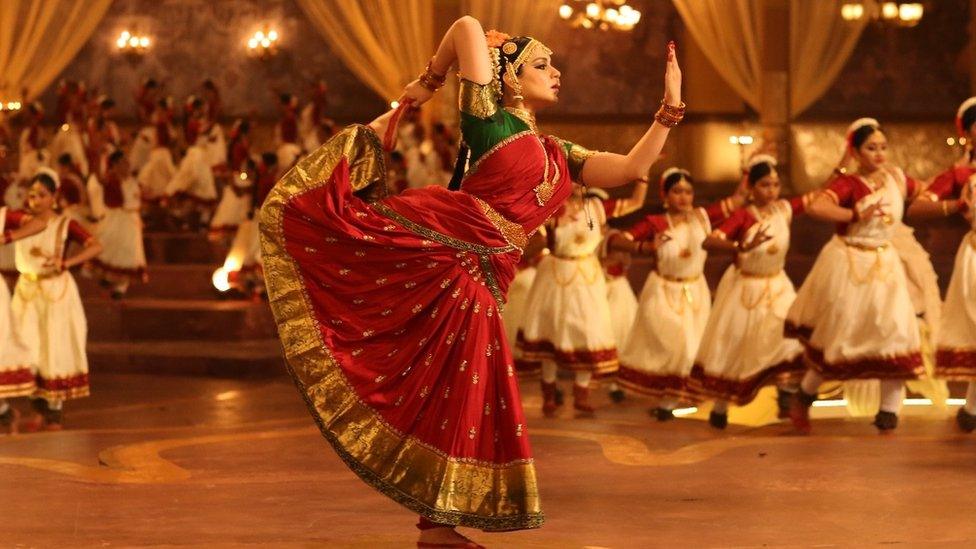Bollywood bets on the small screen as Covid shuts cinemas
- Published
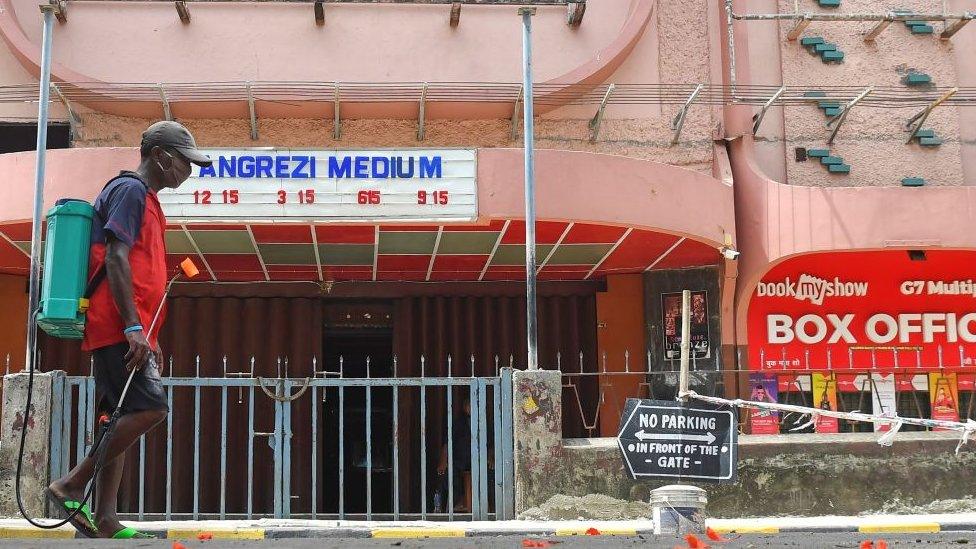
The pandemic has forced cinemas to shut
It’s been an unusual summer in India. Its movie-obsessed millions have had to do without trips to the beloved cinema ever since theatres closed in March because of the coronavirus pandemic.
But there’s been some relief for families cooped up indoors as streaming platforms stepped up to fill the void.
A slew of films have already skipped theatrical releases to slash losses and, instead, hit the small screen. More and more A-list actors are now willing to embrace roles on originals by Netflix, Amazon's Prime Video and Disney+ Hotstar. And the pandemic, to the growing frustration of cinema owners, has hastened a process that was already under way - the shrinking gap between the small and big screen in India.
The result: Bollywood, according to film journalist Aseem Chhabra, “has had to scramble, adjust and, in some cases, compromise”.
A change in the making
In June, the first film to release online was Gulabo Sitabo, a quirky satire steered by one of Bollywood’s biggest stars, Amitabh Bachchan. Then came Shakuntala Devi, a much-anticipated biopic on an Indian maths wizard; Gunjan Saxena, a film inspired by India’s first female pilot; and Sadak 2, a highly awaited sequel to a 1991 thriller.
For these cinema-bound movies, streaming platforms weren't just the only option - they were the obvious choice.
Known for subversive and edgy content that film censor boards would balk at, streaming platforms had already built a strong belt of young and urban viewers, many of whom question Bollywood’s musical spectacles or tired tropes.
“Many learned that streaming isn’t just the future - it’s also the present,” Monika Shergill, vice-president of Netflix India content, said.
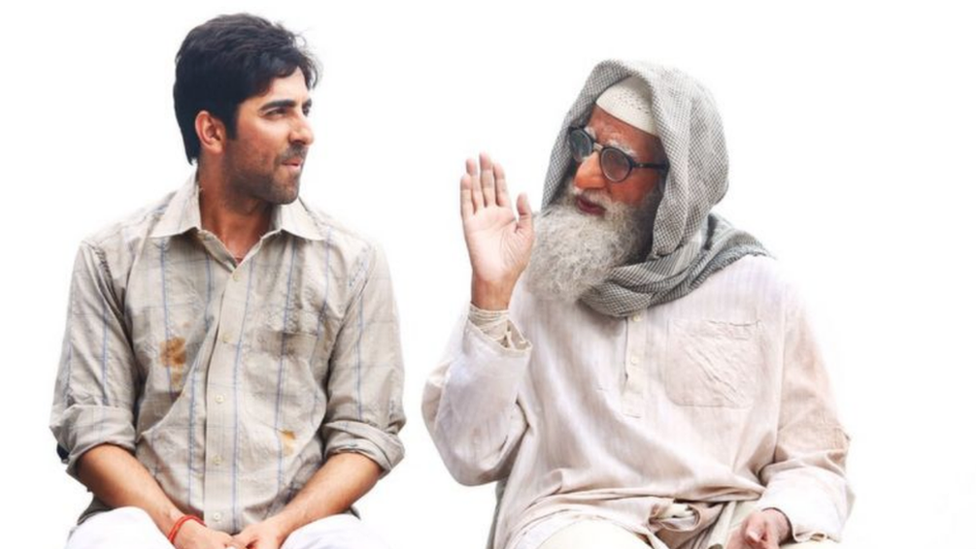
Gulabo Sitabo, starring Amitabh Bachchan (right), was the first major online release
Streaming also offers stiff competition at a time when Bollywood’s favoured destination is out of commission. Netflix and Amazon’s Prime Video have the biggest market share in India, external. The former has released 18 original titles so far this year, while the latter announced it would release 14 titles in 2020, external. Disney+ Hotstar said it would premiere seven Bollywood movies, originally scheduled for cinemas, on its new Multiplex service from 24 July onwards.
These services have helped loosen a rigid divide between cinema and TV in India, according to Mr Chhabra. “In the US, this distinction is a lot more fluid - you have major Hollywood actors who began in TV before getting a big break in the movies.”
This trajectory remains fairly rare in India, where many movie stars began on the big screen itself. And streaming platforms have been the stomping grounds for aspiring actors who would have otherwise struggled to catch a break in Bollywood, which is notorious for its clannishness.
But more recently, Netflix and Amazon have even started to attract the attention of some of the industry’s biggest stars.
The small screen is the big screen
After months of speculation, Bollywood’s highest-paid actor, Akshay Kumar, announced that his horror-comedy, Laxxmi Bomb, would release on Disney+ Hotstar. He will also be starring in a web series on the same platform next year.
This is no small feat because Kumar is one of the few stars who can still draw crowds across India, saddling both urban and rural markets.
“It would have been unthinkable to see an Akshay Kumar on a streaming platform a few years ago,” Mr Chhabra said.
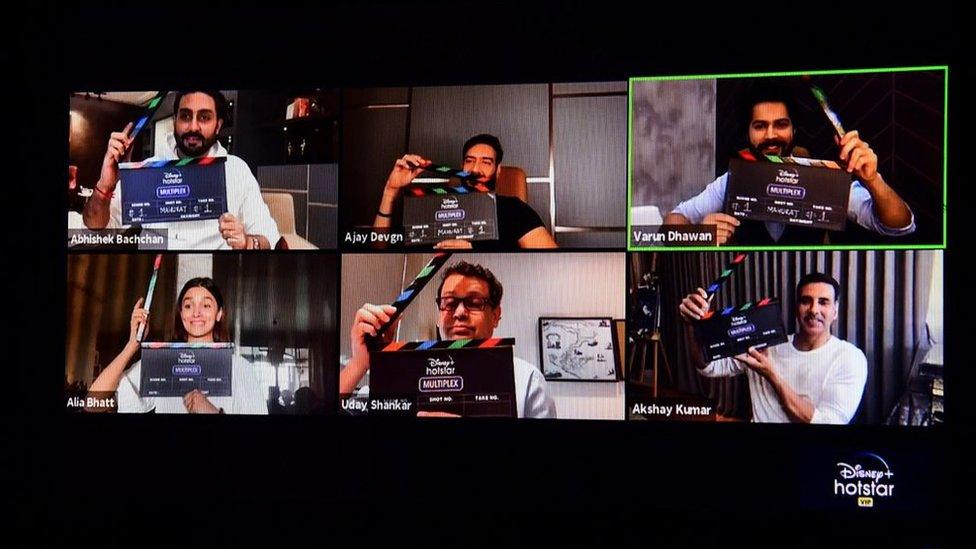
Bollywood stars, including Akshay Kumar, virtually launch Disney+ Hotstar's Multiplex service
The change has been startling, says Vikram Malhotra, CEO of Abundantia Entertainment. His studio was met with raised eyebrows when it first forayed into making content for streaming platforms a few years ago.
“It was looked at as a big step down by actors and directors. They saw it as an outlet for those not getting work in films,” he said.
But his early faith has been rewarded as his studio has had two major online releases since cinemas closed, including Breathe: Into The Shadows, starring Bollywood actor Abhishek Bachchan.
“At the end of the day, as an actor, you look at your next job and you look at a story that needs to be told,” Bachchan told the BBC. “I think it’s a very exciting medium and I think it’s here to stay.”
More mainstream actors have debuted online recently or will do so soon. The list ranges from veterans such as Anil Kapoor, Naseeruddin Shah and Shabana Azmi to top 90s heroines such as Kajol and Karishma Kapoor.
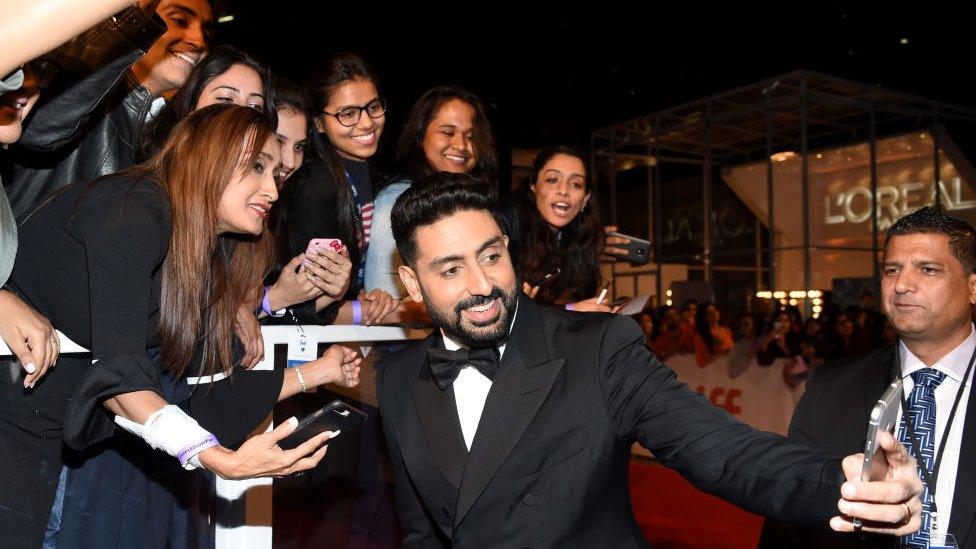
Abhishek Bachchan made his digital debut this summer
“You’ll see more and more actors taking up work on streaming platforms in the coming months,” Apoorva Mehta, CEO of one of India’s biggest studios, Dharma Productions, said.
But while the future of streaming looks sanguine, that of cinemas remains uncertain.
Bollywood rewritten
“Cinemas have got the brunt - we were the first to shut and will be the last to re-open,” said Alok Tandon, CEO of multiplex chain Inox.
Cinema owners recently took out a full-page ad in one of India’s most read dailies asking to reopen. They claimed that the industry had suffered losses of up to $1.2bn (£930m) in the last six months.
But owners are also worried about what happens when their doors reopen. For one, they fear that there will be few Bollywood movies to screen since most have been snapped up by streaming platforms.
Second, they worry they won’t be able to pack the halls because of social distancing. And they might even have to close suddenly if an outbreak is linked to the theatre.
And most important, Bollywood is going to look different when it returns, according to film critic Saibal Chatterjee.
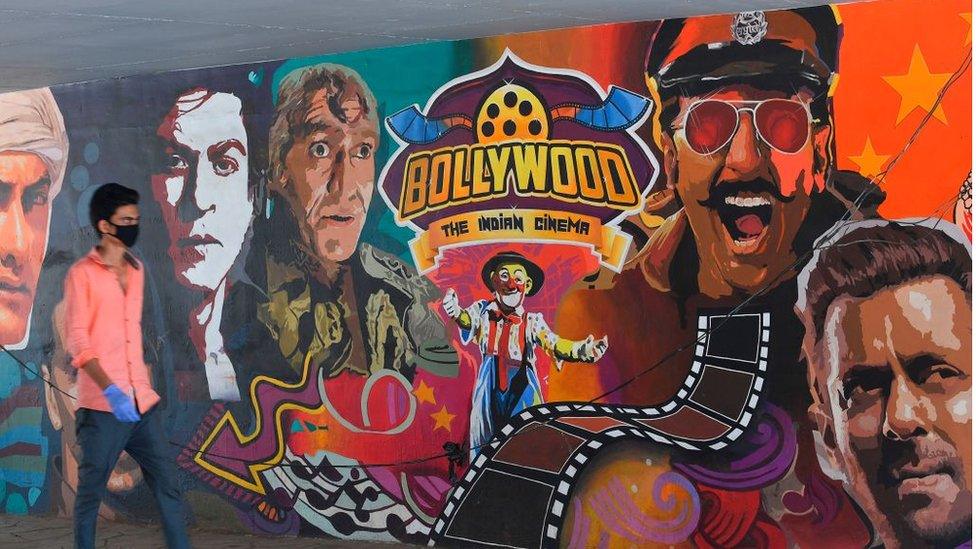
The effects of coronavirus could have a profound effect on Bollywood films
“Budgets have already started to tighten, scripts will change, there won’t be shooting in exotic locales and even superstars will have to take pay cuts,” he said.
He added that this could continue into 2023 - and leave a profound effect on an industry that has always been dictated by the box office.
“You may see more intimate dramas, more pared back content - the cinema could end up mirroring streaming content to help sustain the business,” Mr Chatterjee said.
Meanwhile, two of the year's biggest blockbusters, scheduled to release in March and April, are still waiting for their big-screen debut.
Sooryavanshi, an action-packed police drama and ‘83, a tribute to India’s cricket World Cup victory in 1983, are both star-studded extravaganzas - the hope is that they will pull the crowds to iron out the financial wrinkles.
So cinema owners are not giving up yet. “We’re always just a blockbuster away,” Mr Tandon said.

Read more of our stories

- Published20 August 2020
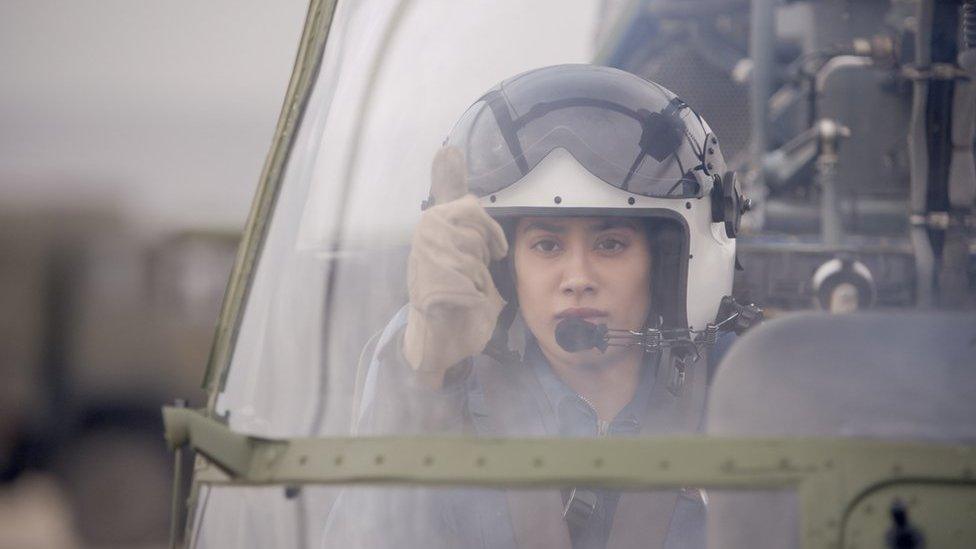
- Published12 April 2020
